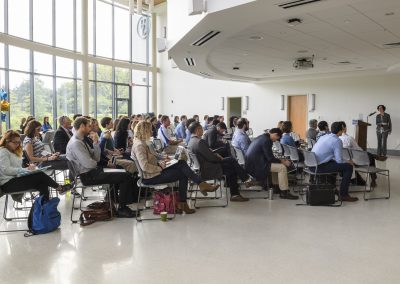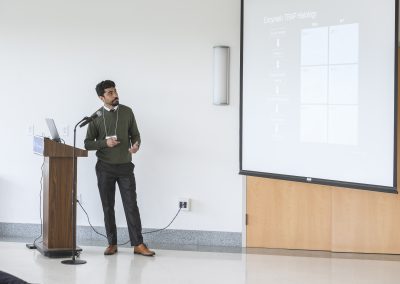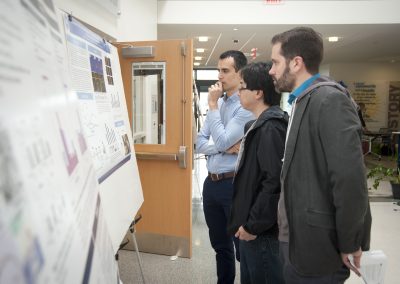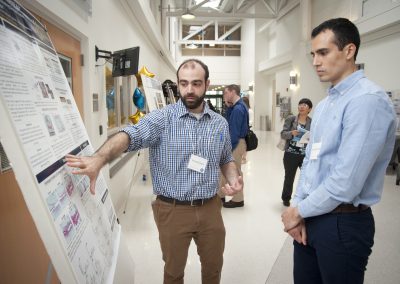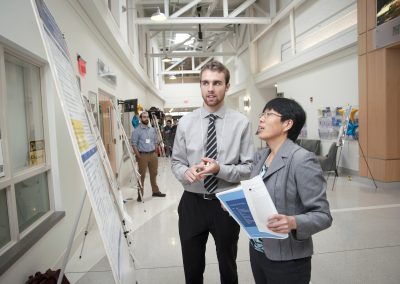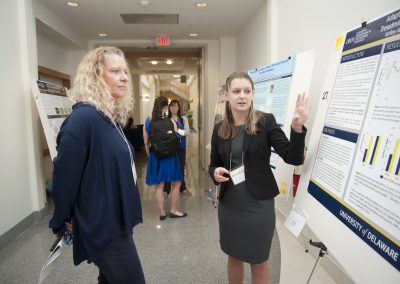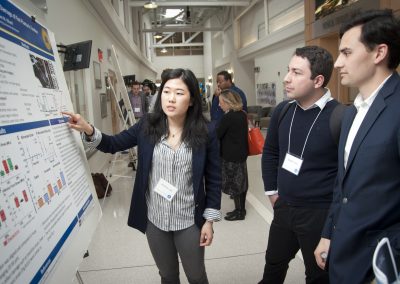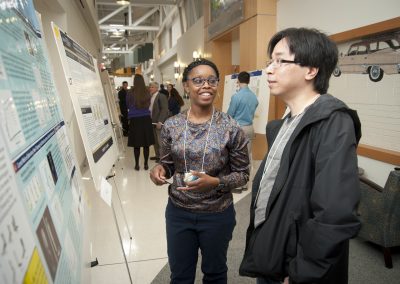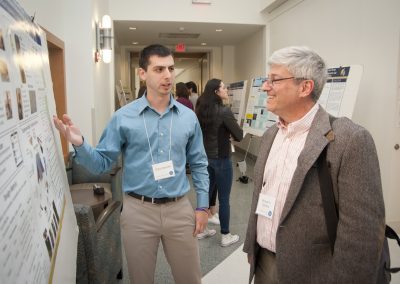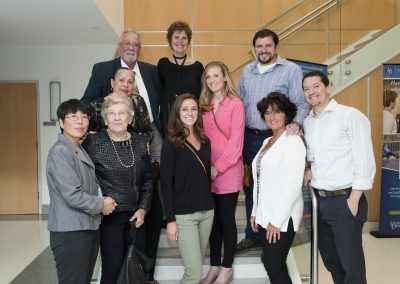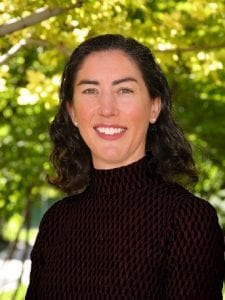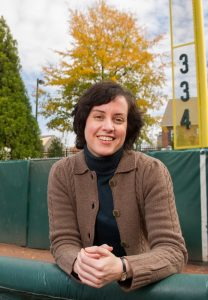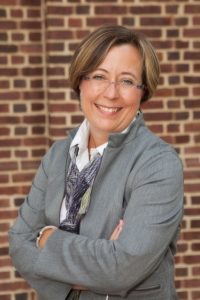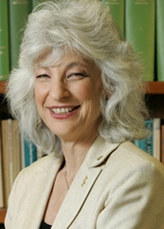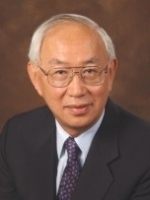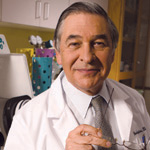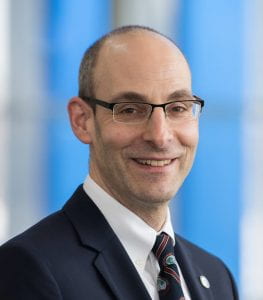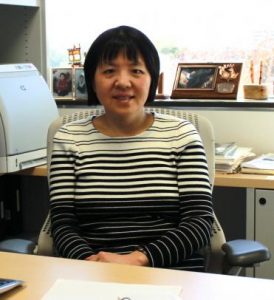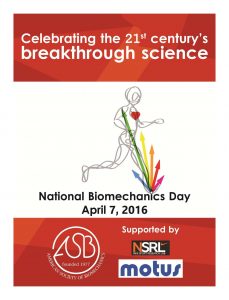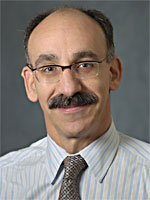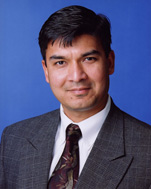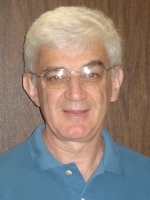Research Symposium -2023
Musculoskeletal Research Symposium
Friday, April 14, 2023
The Center for Biomechanical Engineering Research and the Delaware Center for Musculoskeletal Research will hold a joint Research Symposium at the STAR Tower Audion. Our goal is to show case the exciting research performed by faculty, students, and clinicians at University of Delaware and surrounding hospitals (Nemours Children Health, and Christiana Heath Care), spanning from basic, translational, to clinical studies of biomechanical injury and repair processes and musculoskeletal disorders.
Keynote Speaker Session 1: Dr. Hani A. Awad
Title: Peritendinous Adhesions: Decoding the Roles of TGF-β and Myofibroblasts
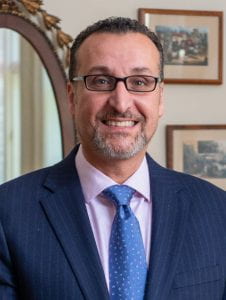
Hani Awad, PhD is The Donald and Mary Clark Professor of Orthopaedics and Biomedical Engineering, and the Associate Director of the Center for Musculoskeletal Research (CMSR) at the University of Rochester. Research in the Awad Lab lies at the intersection of engineering, biology, and medicine, with a focus on understanding, diagnosing, and engineering solutions for musculoskeletal conditions. Current research interests include novel in vitro human microphysiological systems of fibrovascular-inflammatory interactions in acute and chronic tendon injuries, bone infection management and regeneration of massive bone defects using 3D printed biomaterial scaffolds, and non-Invasive multimodal measures of bone health as clinically translatable predictors of fracture risk in osteoporosis. Dr. Awad received several honors including the Kappa Delta Award in 2007 for work on Functional Tissue Engineering for Tendon Repair. He is an elected fellow of the American Institute of Medical and Biological Engineers (FAIMBE) for his contributions to the field of Tissue Engineering, and a Fellow of International Orthopaedic Research (FIOR) for contributions to orthopaedic and musculoskeletal science. He is also the Chair of the Research Council and a Board of Directors member of the Orthopaedic Research Society.
For more information, please see the Awad Musculoskeletal Tissue Engineering Lab page.
Abstract-
Injuries to flexor tendons in zone II of the hand remain among the most difficult injuries for surgeons to repair. Restoration of function during healing is often impaired due to the formation of debilitating peritendinous adhesions, and the incidence of repair rupture typically necessitates additional surgery. Our research focuses on the mechanobiology regulating tendon healing with the goal of manipulating this biology to develop clinically translatable biological therapies to improve outcomes of healing. Our approach uses genetic mouse models of zone II flexor tendon injury to uncover the molecular mechanisms of fibrotic healing. In this talk, I will present emerging paradigms about how inflammatory pathways alter TGF-β1 regulation of myofibroblasts in peritendinous adhesions. I will also present our efforts to translate our discoveries in the mouse model to human microphysiological systems to recreate vascular inflammatory fibrosis on a chip to enable studies of pathogenic mechanisms and discovery or validation of disease-modifying drug candidates.
Keynote Speaker Session 2: Dr. Carla Scanzello
Title: Osteoarthritis as a Chronic Wound: The Role of Toll-like Receptors.
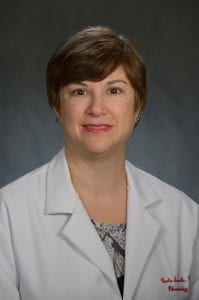 Carla R. Scanzello, MD PhD is an Associate Professor of Medicine at the University of Pennsylvania Perelman School of Medicine, and Acting Chief of Rheumatology and Co-Director of the Multi-Disciplinary osteoarthritis (OA) clinic at the Corporal Michael J. Crescenz VA Medical Center (CMCVAMC) in Philadelphia. She is also Co-Director of the Translational Musculoskeletal Research Center at the CMCVAMC, where she has established her laboratory to study the causes and consequences of inflammation in OA pathogenesis, with the goal of developing novel targeted therapies for OA. Dr. Scanzello got her undergraduate degree in Biochemistry from the University of Delaware (and is proud to be a Blue Hen). She then received her medical and graduate degrees from Temple University School of Medicine in Philadelphia, completed her residency training at New York Presbyterian Hospital-Weill Cornell Medical Center, and her Rheumatology Fellowship at the Hospital for Special Surgery in New York. She spent five years in the Section of Rheumatology at Rush University Medical Center and Cook County Hospital in Chicago, before joining the faculty at Penn and the CMC VA Medical Center in Philadelphia in 2013. She is an active member of the American College of Rheumatology, the Orthopedics Research Society and the Osteoarthritis Research Society International (OARSI), and is an Associate Editor for Arthritis & Rheumatology. Her research has been funded by the National Institutes of Health and the VA Office of Research and Development.
Carla R. Scanzello, MD PhD is an Associate Professor of Medicine at the University of Pennsylvania Perelman School of Medicine, and Acting Chief of Rheumatology and Co-Director of the Multi-Disciplinary osteoarthritis (OA) clinic at the Corporal Michael J. Crescenz VA Medical Center (CMCVAMC) in Philadelphia. She is also Co-Director of the Translational Musculoskeletal Research Center at the CMCVAMC, where she has established her laboratory to study the causes and consequences of inflammation in OA pathogenesis, with the goal of developing novel targeted therapies for OA. Dr. Scanzello got her undergraduate degree in Biochemistry from the University of Delaware (and is proud to be a Blue Hen). She then received her medical and graduate degrees from Temple University School of Medicine in Philadelphia, completed her residency training at New York Presbyterian Hospital-Weill Cornell Medical Center, and her Rheumatology Fellowship at the Hospital for Special Surgery in New York. She spent five years in the Section of Rheumatology at Rush University Medical Center and Cook County Hospital in Chicago, before joining the faculty at Penn and the CMC VA Medical Center in Philadelphia in 2013. She is an active member of the American College of Rheumatology, the Orthopedics Research Society and the Osteoarthritis Research Society International (OARSI), and is an Associate Editor for Arthritis & Rheumatology. Her research has been funded by the National Institutes of Health and the VA Office of Research and Development.
For more information, please see the Scanzello Laboratory for Osetoarthritis Research page.
Abstract-
Osteoarthritis (OA) is a leading source of disability in adults, causing chronic progressive joint pain and degeneration of the entire joint structure. No current medical treatments prevent the progressive joint deterioration, pain and disability characteristic of OA. Synovial inflammation is a common pathologic feature of OA and is strongly associated with disease progression and pain. Moreover, inflammatory transcriptional pathways play critical roles in the phenotypic changes to chondrocytes that promote catabolic activity and result in disruption of the functional integrity of articular cartilage. Therefore, targeting inflammation in the OA joint holds promise for preventing chronic pain while also slowing structural progression. But it is not yet clear which pathways are most targetable to ameliorate chronic inflammation in the setting of OA. Our laboratory has been investigating the role of Toll-like receptors in OA-associated inflammation. TLRs are pattern-recognition receptors (PRRs) of the innate immune response, and are important in initiating inflammation in response to both infectious and non-infectious tissue damage. Several observations support a role for TLR signaling in OA, both in promoting pathology and pain. We have recently demonstrated a critical role for the TLR co-receptor CD14 in an injury-induced OA model. This work will be discussed in the context of the broader literature implicating TLRs and other PRRs of innate immunity in OA. Taken together, evidence implicating TLRs as central mediators of inflammation in OA suggests a hypothetical model of OA as a chronic wound of the joint, in which TLRs sustain chronic inflammation through interaction with molecular “danger-signals” produced by ongoing tissue damage and cellular stress.
Program – subject to change
| 8:45 | Breakfast | |
| 9:25 | Welcome & Introductory Remarks | CBER Director: Liyun Wang DCMR Director: Dawn Elliott |
| 9:30 | Keynote Lecture Session 1 Title: Peritendinous Adhesions: Decoding the Roles of TGF-β and Myofibroblasts |
Hani Awad, PhD |
| 10:30 | Podium Session 1 | |
| 11:30 | Poster Session 1- ODD #s | |
| 12:15 | Lunch | |
| 12:45 | Poster Session 2- EVEN #s | |
| 1:30 | Keynote Lecture Session 2 Title: Osteoarthritis as a Chronic Wound: The Role of Toll-like Receptors |
Carla Scanzello, MD, PhD |
| 2:30 | Podium Session 2 | |
| 3:30 | Awards |
Past Event Proceedings
2019 Event
2017 Event
2015 Event
2013 Event
2011 Event
2009 Event
2007 Event
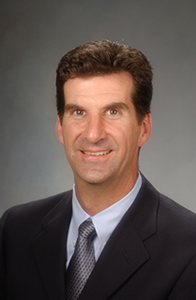
Keynote Speaker: Dr. Steven Stanhope
2005 Event
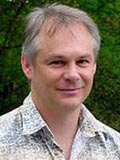
Keynote Speaker: Dr. Steven Kautz
2021 Event
Virtual Event
Keynote Speaker Session 1: James Iatridis, PhD
Title: Biomaterial Strategies for Repair and Regeneration of the Annulus Fibrosus
Keynote Speaker Session 2: Daniel Ferris, PhD
Title: Embodiment for Bionic Prostheses and Robotic Exoskeletons
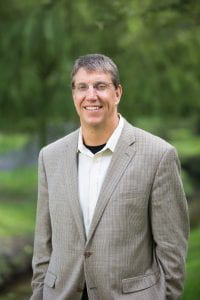
2018 Event
2016 Event
2014 Event
2012 Event
2010 Event
2008 Event
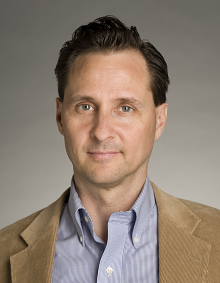
Keynote Speaker: Dr. Hugh Herr
2006 Event
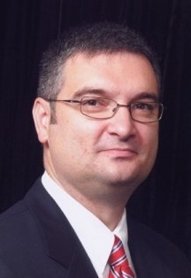
Keynote Speaker: Dr. Steven Kautz
2004 Event
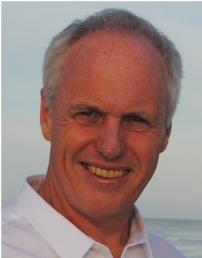
Keynote Speaker: David Lloyd

